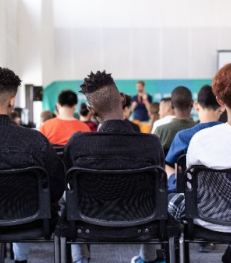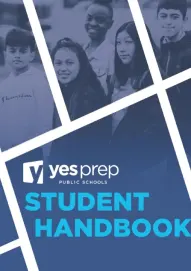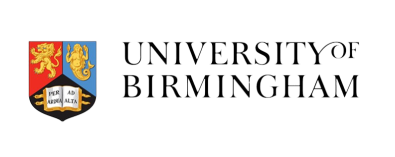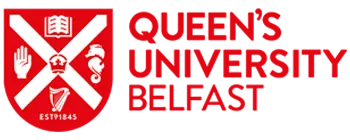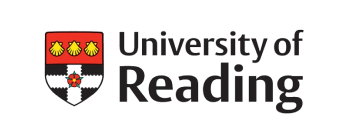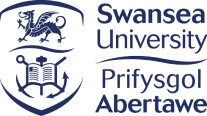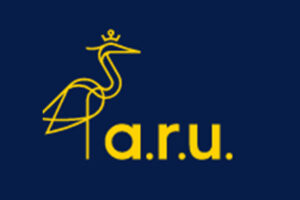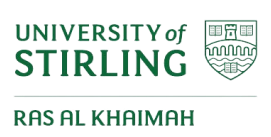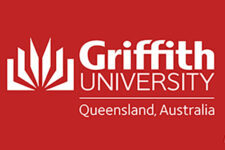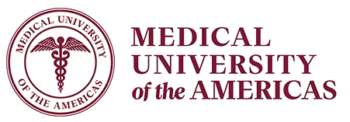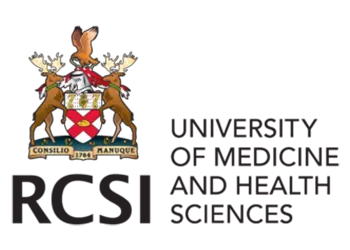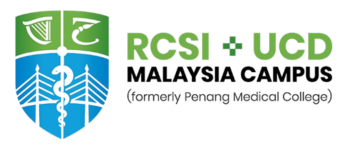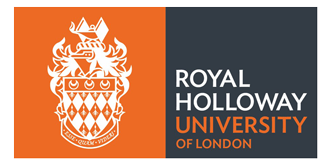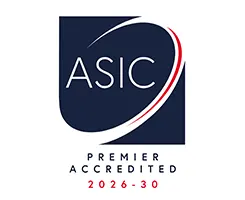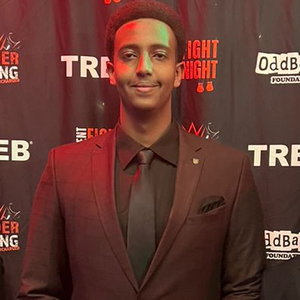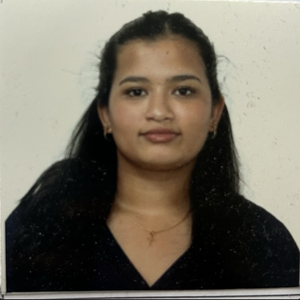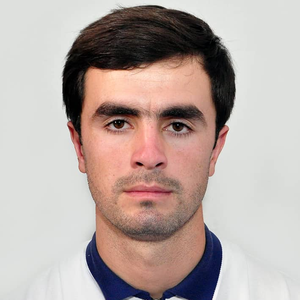Safeguarding Children in our College Child Protection Policy
Legal Status:
- This policy on child protection is in accordance with the locally agreed inter-agency procedures (Westminster Safeguarding Children Board). The policy also complies with guidance from the DfE and the London Safeguarding Children Board (LSCB).
- This policy is consistent with guidance from the Department for Education (DfE) and Complies with Regulation 3(3)(7) of the Education (Independent School Standards) (England) Regulations 2010,Safeguarding Children and Safer Recruitment in Education guidance and HM Government Guidance “Working Together to Safeguard Children” 2010 along with any further amendments as they are published.
Applies to:
- Whole College
Designated Safeguarding Officers (DSO) for International Foundation Group
- The Designated Safeguarding Officer for the whole College, is Michael Addison, who may be contacted on 020 3 633 0510, mobile no. 07814 993368 or by email, m.addison@intfoundationgroup.co.uk.
Monitoring and Review
- The Academic Director and DSO will take lead responsibility for dealing with child protection issues.
- To be continuously monitored and reviewed by the Academic Director, the Proprietors and the Company Secretary by no later than one year from the date shown.
Date: 28.05.2016
Statement of Intent
Our College fully recognises the responsibilities it makes to Child Protection. The College is committed to providing a safe and secure environment for pupils, staff and visitors and promoting a climate where pupils and adults will feel confident about sharing any concerns which they may have about their own safety or the wellbeing of others. This policy is applicable to all on and off-site activities undertaken by pupils whilst they are the responsibility of the College. Our policy applies to the proprietors, all staff, volunteers and visitors working in the college. The health, safety and welfare of all our pupils are of paramount importance to all the adults who work in our college. Our policy applies to all staff, proprietors and volunteers working in the college. There are five main
elements to our policy as follows:
- Ensuring we practise safe recruitment in checking the suitability of staff and volunteers to work with pupils.
- Raising awareness of child safeguarding issues and equipping pupils with the skills needed to keep them safe.
- Developing and then implementing procedures for identifying and reporting cases, or suspected cases, of abuse.
- Supporting pupils who have been abused in accordance with their agreed child safeguarding plan.
- Establishing a safe environment in which pupils can learn and develop.
The College complies with the Westminster local safeguarding agency, inter-agency child protection procedures and guidance whenever an allegation or disclosure of abuse has been made. This is in accordance with Working Together To Safeguard Children and what to do if you’re worried a child is being abused.
We comply with the DfE requirements for the Safeguarding of Children and Safer Recruitment in Education and the Independent School Standards Regulations. The health, safety and welfare of all our pupils are of paramount importance to all the adults who work in our college.
Our pupils have the right to respect and protection, regardless of age, gender, religion, race, nationality, sexuality, culture or disability. They have a right to be safe in our college. The atmosphere within our college is one that encourages all pupils to do their best. We provide opportunities that enable our pupils to take and make decisions for themselves. We recognise that abuse and neglect can result in underachievement. We strive to ensure that all our pupils make good educational progress. All pupils should care for and support each other. Safeguarding encompasses all aspects of college life where pupil’s welfare may be compromised.
We recognise that, because of the day to day contact with pupils, college staff are well placed to observe the outwards signs of abuse. The college will therefore:
- establish and maintain an environment where pupils feel secure, are encouraged to talk, and are listened to;
- ensure pupils know that there are adults in the college whom they can approach if they are worried;
- include opportunities in the PSHE curriculum for pupils to develop the skills they need to recognise and stay safe from abuse.
We also, as a minimum, comply with the detailed provisions set out in section 2.22 of Safeguarding Children and Safer Recruitment in Education, whereby the College:
- has a policy and procedures in accordance with the locally agreed inter-agency procedures and makes them available to parents on the college website and will send them a copy on request;
- has a safer recruitment policy and procedures, including Criminal Records Bureau (CRB) checks, compliance with the Independent School Standards Regulations inclusive of the Centralised Register (Single Central Record);
- has arrangements to deal with allegations of abuse against employees including the Academic Director and volunteers;
- names and has ‘designated persons’ with ‘status and authority’ to take responsibility for child protection matters;
- ensures that designated persons complete the required training (updated every two years) in child protection and inter-agency working;
- ensures that all staff undertake the required training in child protection (updated every three years) and that temporary and volunteer staff who work with children are made aware of the arrangements;
- if any deficiencies or weaknesses in the child protection arrangements were to occur that they would be remedied without delay;
- ensures that the proprietors undertakes an annual review of the college’s child protection policies and procedures and of the efficiency with which the related duties have been discharged.
Also, whole-college in-service training on safeguarding issues is organised. (See Staff Training Details). All newly recruited staff (teaching and non-teaching) and Proprietors are informed of this policy and are required to attend Level 2 training as part of their induction, with this being refreshed every three years. The Designated Persons attend Level 3 Child Protection and Inter-Agency training and then refresher training at least every two years.
It is the policy of the College when deciding to make a referral, following an allegation or suspicion of abuse, the head and designated child protection officer do not make their own decision over what appear to be border-line cases, but rather the doubts and concerns are discussed with the Local Authority Designated Officer (LADO). There may well be circumstances whereby this is done tentatively and without giving names in the first instance. It is understood that what appears trivial at first can later be revealed to be much more serious, and an allegation of child abuse or neglect may lead to a criminal investigation. The College does not do anything that may jeopardise a police investigation, such as asking a child a leading question or attempting to investigate the allegations of abuse (What to do if you’re worried a child is being abused, sections 10.2 and 10.3).
The welfare of the child is paramount. The College works with children, parents/guardians and the community to ensure the safety of children and to give them the very best start in life. Every pupil should feel safe and protected from any form of abuse which, in this policy, means any kind of neglect, non-accidental physical injury, sexual exploitation or emotional ill-treatment. Our policy and commitment is to take all reasonable measures to safeguard and promote the welfare of each child and young person (pupil) in our care.
The aims of our policy include:
- prevention through the teaching and pastoral support offered to pupils;
- procedures for identifying and reporting cases, or suspected cases, of abuse;
- support to pupils who may have been abused in accordance with their child protection plan.
The main elements of our policy and procedures include the following:
- signs of possible abuse;
- that confidentiality cannot be promised to a child giving evidence;
- the need to avoid asking leading questions;
- procedures for dealing with abuse by one or more pupils against another pupil;
- the college’s reporting arrangements (including contact with a welfare agency within 24 hours of disclosure or suspicion of abuse);
- the contact details of agency involvement;
- guidance for staff, to ensure that their behaviour and actions do not place children or themselves at risk of harm or of allegations of harm to a child (for example, in one-to-one tuition, sports coaching, conveying a child by car, engaging in inappropriate electronic communication with a child, and so on);
- that assurance is obtained that appropriate child protection checks and procedures apply to any staff employed by another organisation and working with the college’s children on another site.
What is child abuse and the signs of abuse?
The NSPCC defines child abuse as:
“Child abuse is the term used when an adult harms a child or a young person under the age of 18. Child abuse can take four forms, all of which can cause long term damage to a child: physical abuse, emotional abuse, neglect and child sexual abuse. Bullying and domestic violence are also forms of child abuse. A child may be experiencing abuse if the child is:
- frequently dirty, hungry or inadequately dressed;
- left in unsafe situations, or without medical attention;
- constantly “put down,” insulted, sworn at or humiliated;
- seems afraid of parents or carers;
- severely bruised or injured;
- displays sexual behaviour which doesn’t seem appropriate for their age;
- growing up in a home where there is domestic violence;
- living with parents or carers involved in serious drug or alcohol abuse.
Remember, this list does not cover every child abuse possibility. You may have seen other things in the child’s behaviour or circumstances that worry you. Abuse is always wrong and it is never the young person’s fault.” Also please refer to Appendix A. It can also be the result of neglect, or it can cause grave concern. Possible signs of abuse include (but are not limited to):
- the pupil states that abuse has taken place or asks a question which gives rise to that inference;
- there is no reasonable or consistent explanation for a child’s injury; the injury is unusual in kind or location;
- there have been a number of injuries; there is a pattern to the injuries;
- the pupil asks to drop subjects with a particular staff member and seems reluctant to discuss the reasons;
- the pupil’s development is delayed;
- the pupil loses or gains weight;
- the pupil appears neglected, e.g. dirty, hungry, inadequately clothed;
- the pupil is reluctant to go home, or has been rejected by her parents/caregivers.
A child may be subjected to different types of abuse. It is also possible that a child may show no outward signs and hide what is happening from everyone. Remember safeguarding children is not just about the formal definitions of abuse. It may also include, for example, self-harm, self-neglect eating disorders, bullying, or even adverse risk-taking.
Transparency
International Foundation Group prides itself on its respect and mutual tolerance. Parents/Guardians have an important role in supporting the college. Copies of this policy, together with our other policies relating to issues of child protection are on our web site, and we hope that parents/guardians will always feel able to take up any issues or worries that they may have with the College. We will never ignore an allegation of child abuse and will always investigate any concerns thoroughly. Open communications are essential.
Working in Partnership with Parents
We work in partnership with parents or carers to secure the best outcomes for our children. All parents/guardians need to understand that we have a duty to safeguard and promote the welfare of the children of our college, that this responsibility necessitates a child protection policy and procedures, and that we may need to share information in partnership with other agencies when there are concerns about a pupil’s welfare. The pupil’s safety and welfare will always be our main priority. All parents/guardians applying for places at this College will be informed of our safeguarding responsibilities and the existence of this policy. In situations where pupils sustain injury or are otherwise affected by an accident or incident whilst they are the responsibility of the College, parents/guardians will be notified of this as soon as possible.
We will therefore communicate as clearly as possible about the aims and ethos of the College including:
- using clear statements in our brochures and correspondence;
- involving pupils in the development of Codes of Conduct and Behaviour policies and communicate these to parents/guardians;
- liaising with agencies in the statutory, voluntary and community sectors and locality teams that are active in supporting families;
- being alert to the needs of parents/carers who do not have English as their first language;
- keeping parents informed as and when appropriate;
- seeking to discuss any concerns about a child’s welfare with parents however in certain circumstances this may not be deemed appropriate.
Raising awareness
The Proprietors formally consider child protection issues once a year. Day to day issues are delegated to the Academic Director and the Designated Safeguarding Officer (DSO) for the College. The Proprietors are responsible for:
- reviewing the procedures for and the efficiency with which the child protection duties have been discharged;
- ensuring that any deficiencies or weaknesses in child protection arrangements are remedied without delay;
- approving amendments to child protection arrangements in the light of changing Regulations or recommended best practice.
Allegations made against staff
It is also the policy of the College that allegations against staff, volunteers or the designated persons with responsibility for safeguarding are reported to the Academic Director of the College, who will then immediately report this to the Local Authority Designated Officer (LADO). The LADO will advise the Academic Director on the next steps to take. If the Academic Director is absent the allegation is passed to the College Safeguarding Officer.
In the case of serious harm the police are informed from the outset. If the allegation concerns the Academic Director of the College, the person receiving the allegation should immediately inform the Executive Director without notifying the Academic Director first. In the case of serious harm, the police are informed from the outset.
Staff are reminded of the need to exercise professional judgement in order that they do not leave themselves exposed to the risk of vexatious allegations particularly in one to one tuition, sports coaching, conveying a pupil by car, engaging in inappropriate electronic communication with a pupil etc. It is the responsibility of the college to refer, not to investigate. The college complies with the Independent Safeguarding Authority (ISA) legislation whereby it is an offence to:
- knowingly employ (or take on as a volunteer) in an ISA regulated activity, someone who is barred from such activity. (NB this is in effect not a new requirement: it broadly replaces an offence under protection of children legislation which had existed since 2000;
- not refer to the ISA details of anyone who is removed from regulated activity, or who leaves while under investigation for allegedly causing harm or posing a risk of harm.
The College reports to the Independent Safeguarding Authority (ISA) whose contact details for referrals is PO Box 181, Darlington, DL1 9FA (telephone: 0300 123 1111), immediately upon leaving the college any person (whether employed, contracted, a volunteer or student) whose services are no longer used because the child is considered unsuitable to work with children.
In the above context, ceasing to use a person’s services includes: dismissal; non-renewal of a fixed term contract; no longer engaging/refusing to engage a supply teacher provided by an employment agency; terminating the placement of a student teacher of other trainee; no longer using staff employed by contractors;; no longer using volunteers; resignation and voluntary withdrawal from supply teaching, contract working, a course of initial teacher training or volunteering. We also recognise the importance that reports include as much evidence as possible. We also ensure that ‘Compromise Agreements’ never apply in this connection.
Safeguarding and Child Protection Procedures
The College’s records on child protection are kept locked in the Academic Director’s study, and are separated from routine pupil records. Access is restricted to the Designated Safeguarding Officers and the Academic Director.
- We comply with the Westminster Safeguarding Children Board procedures and guidance. Where there are concerns about a pupil’s welfare, we will take all the appropriate action to address those concerns, working to the agreed local policies and procedures, in partnership with the necessary agencies. We handle all such cases with sensitivity and we place paramount importance on the interests of the pupil.
- All adults working in the College (including visiting staff, volunteers and students on placement) share responsibility for keeping our pupils safe. They must not investigate any concerns about a pupil’s welfare or neglect, or instances of actual or suspected child abuse (including a disclosure), but are required to report these immediately to the Academic Director.
- When making decisions on the appropriate action to take, the pupil’s safety and welfare are the overriding consideration.
- The Academic Director keeps a record of any allegations made, details of how the allegation was followed up and resolved, and any action taken.
- There may be occasions when concerns are reported, which on investigation prove unfounded.
- If a child alleges abuse, the Academic Director will take the appropriate action, which may under certain circumstances not involve informing the parents first.
- If a parent/guardian has concerns and wants to make an allegation of abuse by a member of staff, they must inform the Academic Director immediately.
Safeguarding Children Cue Card
Pupil/Young people at risk of serious harm/neglect If we have any concern that a pupil/young person may be at risk of harm or neglect, we will contact the Westminster Duty Team in the Local Authority straight away. They will advise us on an appropriate course of action. If it is safe to do so (i.e. if it doesn’t place a child/young person at risk of greater harm), we will notify the parents before making the referral. If a child/young person makes a disclosure of abuse or neglect the following procedure will apply.
We:
- explain to the pupil that we will share this information with a senior member of staff in order to help them;
- listen carefully to and believe what the child is saying and take it seriously;
- reassure the child who has made the disclosure that they have done the right thing and assure them that we believe them;
- give the child time to talk and do not probe or ask leading questions – investigation is not your responsibility;
- do not promise to keep secrets – all allegations of harm or potential harm must be acted upon;
- record what has been said as soon as possible after the conversation and ensure that the Referral and Assessment team are notified within 24 hours;
- do not confront the abuser;
- ensure that information you have is kept confidentially and only shared with people who need to know.
Designated Persons that is the Designated Safeguarding Officers (DSO’s)
The main responsibilities of the Designated Persons are:
- to be the first point of contact for parents, pupils, teaching and non-teaching staff and external agencies in all matters of child protection;
- to advise and act upon all suspicion, belief and evidence of abuse reported to them;
- to decide whether or not the incident should be reported as a safeguarding issue;
- to co-ordinate the child protection procedures in the college;
- to maintain an on-going training programme;
- to monitor the keeping, confidentiality and storage of records in relation to child protection;
- to liaise with the child protection officer appointed by the Local Authority;
- to monitor the child protection arrangements and ensure that any deficiencies or weaknesses are remedied without delay;
- to keep the Academic Director informed of all actions;
- to liaise with the Local Authority (Westminster) and, where applicable, the police, following any child protection allegation or suspicion.
- to keep written records of concerns about a child, even if there is no need to make immediate referral;
- to ensure that all such records are kept confidentially and securely, and are separate from pupil records;
- to monitor the attendance of any pupil currently deemed to be at risk and refer concerns, when appropriate, to the local authority;
- to ensure all college staff, teaching and support, are trained and receive refresher training every three years about their responsibilities with regards to the college’s Child Protection Policy
If one of the Designated Persons is unavailable or is them self the subject of a complaint, the duties will be carried out by the other Designated Person.
The parent/carer will normally be contacted before a referral is made to the Local Authority. However, if the concern involves alleged or suspected sexual abuse or the Designated Person has reason to believe that informing the parent/carer at this stage might compromise the safety of the child or a staff member there will be no contact by the college prior to the referral, (although the reasons for this course of action will be documented on the referral).
In circumstances where a pupil has an unexplained or suspicious injury that requires urgent medical attention, the referral process should not delay the administration of first aid or emergency medical assistance. If a pupil isthought to be at immediate risk because of parental violence, intoxication, substance abuse, mental illness or threats to remove the child during the College day for example, urgent Police intervention will be requested.
Where a pupil sustains a physical injury or is distressed as a result of reported chastisement, or alleges that they have been chastised by the use of an implement or substance, this will immediately be reported for investigation. Referrals to the local authority will be confirmed in writing.
The College recognises the need to be alert to the risks posed by strangers or others(including the parents or carers of other pupils) who may wish to harm children in College or pupils travelling to and from College and takes all reasonable steps to lessen such risks.
Vulnerable Pupils
Particular vigilance will be exercised in respect of pupils who are the subjects of Child Protection Plans and any incidents or concerns involving these children will be reported immediately to the allocated Social Worker (and confirmed in writing).
If a pupil(s) discloses that they has witnessed domestic violence or it is suspected that they may be living in a household which is affected by family violence, this will be referred to the Designated Person as a safeguarding issue. The College acknowledges the additional needs for support and protection of children who are vulnerable by virtue of disability, homelessness, refugee/asylum seeker status, the effects of substance abuse within the family, those who are young carers, mid-year admissions and pupils who are excluded from college.
We recognise that pupils who are affected by abuse or neglect may demonstrate their needs and distress through their words, actions, behaviour, demeanour, college work or other children. The College has a strong commitment to an anti-bullying policy and will consider all coercive acts and inappropriate child on child behaviour and sexual activity within a Child Protection context. In the case of a young person between the ages of 14 and 16, an individual risk assessment will be conducted in accordance with the Local Authority Child Protection Procedures. This will determine how and when information will be shared with parents and the investigating agencies.
Child’s Death
In the event of a death of a child/young person the Academic Director must notify both the Westminster Child Death Administrator and the Social Care Duty Team.
Confidentiality
- We regard all information relating to individual child protection issues as confidential and we treat it accordingly, passing information on to appropriate persons only.
- The college complies with both the legislative and government requirements with regard to confidentiality. The files we keep on children are open to those children’s parents/guardian. Information from third parties will not be disclosed without their prior consent. Access to these files may be withheld in certain prescribed cases where there are instances of actual or alleged abuse in accordance with law. Working notes are not subject to disclosure, but will be summarised and then kept on file.
- It must be made clear that the person confided in as an adult, must tell someone else so that the abuse can be dealt with. Keeping secrets with a child when told about an abusive situation, only adds to the abuse. If a child requests a talk ‘in confidence’ meaning ‘don’t tell anyone else’, the member of staff will explain that they cannot promise to do so. They can only promise to act in the best interests of the child and that they will keep them informed of what is happening. If the child then refuses to talk, staff should ensure that they know of other agencies they can turn to e.g. Child Line etc.
Website Child Protection Policy
The college operates the following policy on its website regarding the use of photos, to ensure the privacy and safety of pupils at the college:
- Where a pupil is named, no photograph of that child is displayed.
- Where a photograph is used which shows a child, no name is displayed.
- Where pupils are named, only their first names are given.
Observing these points, the college ensures that visitors to the website cannot link images of children to names of children. When choosing photographs for the website, the college is mindful of the way children may appear in them, and will not include images which are in any way inappropriate. The college follows a policy of seeking parents’ permission before using images which show children on the website or in the local press. The list showing pupils, who are barred from appearing in the press, or on the website, is kept in the College Office and is available whenever photographers are present. No other information about pupils is ever published on the website such as surnames or contact details.
Parents Photographing/Videoing Pupils
Parents/Guardians who wish to photograph or video pupils at public college events such as the swimming gala, gym display or college productions must sign a form prior to the event agreeing that they will not use the photographs for public purposes such as publishing clips on YouTube, Facebook or any other networking site. If parents/guardians do not wish their children to be photographed or filmed and express this view in writing, their rights will be respected.
Safer Recruitment
- International Foundation Group follows the Government’s recommendations for the safer recruitment and employment of staff who work with children. In ensuring a consistent and thorough process of safe recruitment we follow the DfE guidance set out in Safeguarding Children and Safer Recruitment in Education.
- All members of the teaching and non-teaching staff at the College, including part-time staff, temporary and supply staff, and visiting staff, such as musicians and sports coaches, are checked in accordance with the full requirements of the Centralised Record (Single Central Register) before starting work. All Proprietors, volunteers, helpers, and contractors working regularly during term-time, such as contract catering staff are also vetted, along with those persons who may not have direct contact with children but because of their presence will still be seen as safe and trustworthy. Our policies are reviewed by the Proprietors annually. More detail is set out in our Safer Recruitment Policy and Procedures.
- We require the Chair of the interview panels to have completed the Safer Recruitment Training and Assessment
- We do all we can to ensure that all those working with children in our college are suitable people., inclusive of an Enhanced CRB and the ISA Children’s List (previously referred to as List 99) checks. This involves scrutinizing applicants, verifying their identity, checking their employment history and qualifications and obtaining independent professional and character references that answer specific questions to help assess their suitability to working with children.
- We understand that it is an offence under the Vetting and Barring Legislation to knowingly employ (or take on as a volunteer), in an ISA regulated activity, someone who is barred from such activity.
- The College only uses employment agencies which can demonstrate that they positively vet their supply staff and will report the misconduct of temporary or agency staff to the agency concerned and to the Local Authority.
- Staff and volunteers joining the College on a permanent or temporary basis will be given a copy of this policy.
Duty of Employees
In order to fulfil its legal obligations under statutory guidance the college has developed objectives for children.
These include:
- creating a safe environment where children feel valued and secure, are listened to and are able to identify an adult in college who they could safely approach if they are worried or concerned;
- raising the awareness of child protection issues through the curriculum;
- supporting children who have been abused in accordance with his/her agreed child protection plan;
- attending all relevant meetings and child protection conferences, assisting with the implementation of any protection plans or looked after care plans;
- providing information for parents/carers through the college prospectus;
- promoting early intervention strategies throughout the college to support children and young people who are presenting with emerging vulnerabilities.
- being alert to the medical needs of children with medical conditions.
- obtaining assurances that appropriate child protection checks and procedures apply to any staff employed by another organisation and working with our college’s pupils on another site (for example, off site netball matches).
Volunteers
Our College ensures that all staff, teaching, support staff (including temporary and supply staff and volunteers), will:
- be responsible for their own actions and behaviour and should avoid any conduct which would lead any responsible person to question their motivation and intentions;
- work, and be seen to work in an open and transparent way and should be given guidance to help them achieve this, ensuring that their behaviour and actions do not place pupils or themselves at risk of harm or of allegations of harm to a pupil;
- discuss and/or take advice promptly from their line manager or another senior member of staff over an incident which may give rise for concern;
- be aware that they have individual responsibility for referring every complaint or suspicion of abuse from within or outside the College in accordance with the procedures published by the Westminster Safeguarding Children Board, keep a sufficient record of any significant complaint, conversation or event;
- be aware that it is not the responsibility of staff in the college to investigate suspected cases of abuse;
- be aware that they cannot promise a child complete confidentiality – instead they must explain that they may need to pass information to other professionals to help keep the child safe from harm;
- be aware of the internal referral process within the college;
- report any matters of concern to the Designated Safeguarding Officer;
- know the name of the Designated Safeguarding Officer (understanding the responsibilities of the post), to whom all matters of concern are immediately reported.
- have received a copy of the colleges Child Protection Policy and Appendix A.
- ensure that their behaviour and actions do not place pupils or themselves at risk of harm or of allegations of harm to a pupil (for example, in one-to-one tuition, sports coaching, conveying a pupil by car, engaging in inappropriate electronic communication with a pupil, and so on);
- be aware that breaches of the law and other professional guidelines could result in criminal or disciplinary action being taken against them.
Any parent or other person/organisation engaged by the College to work in a regular voluntary capacity in the college is subjected to all reasonable vetting procedures and Criminal Record Bureau Enhanced disclosure. Volunteers work under the direct supervision of an established staff member and will be subject to the same code of conduct as paid employees of the College. The volunteer will assist in the care of a small group of children but the sole responsibility for the personal care of pupils will be the staff member. Voluntary sector groups that operate within this College, provide off-site services for our pupils or use college facilities will be expected to adhere to this policy or operate a policy which is compliant with the procedures adopted by the Westminster Safeguarding Children Board. Premises lettings and loans are subject to acceptance of this requirement.
We explicitly require staff to report to the Academic Director or Designated Safeguarding Officer of the college or the Local Authority any concern or allegation about college practices or the behaviour of colleagues which are likely to put pupils at risk of abuse or other serious harm. We provide immunity from retribution or disciplinary action against such staff for “Whistleblowing” in good faith is as far as possible guaranteed by the college. At all levels, including newly appointed and ancillary, staff have been given briefing or training on responding to suspicions or allegations of abuse and know what action they should take in response to such suspicions or allegations.
Staff code of conduct
All staff (paid and voluntary) are expected to adhere to a professional code of conduct in respect of their contact with pupils and their families. Pupils will be treated with respect and dignity and no punishment, detention, restraint, sanctions or rewards are allowed outside of those detailed in the College’s Behaviour Policy. Whilst it would be unrealistic and undesirable to preclude all physical contact between adults and children, staff are expected to exercise caution and avoid placing themselves in a position where their actions might be open to criticism or misinterpretation. Where incidents occur which might otherwise be misconstrued, or in the exceptional circumstances where it becomes necessary physically to restrain a pupil for their own protection or others’ safety, this will be appropriately recorded and reported to the Head of the College and parents/guardians. Any physical restraint used will comply with DfE and Local Authority guidance.
For their own safety and protection, staff should exercise caution in situations where they are alone with pupils. Other than in formal teaching situations the door to the room in which the 1:1 coaching, counselling or meeting is taking place should be left open. All teaching rooms will have clear and unobstructed glass panels in the doors. College staff should also be alert to the possible risks that might arise from social contact with pupils outside of the College. Home visits to pupils or private tuition of pupils should only take place with the knowledge and approval of the Academic Director. Visits/telephone calls, texts or emails by pupils to the homes of staff members should only occur in exceptional circumstances and with the prior knowledge and approval of the Head of the College. Any unplanned contact of this nature or suspected infatuations or “crushes” should be reported to the Academic Director. Staff are actively discouraged from disclosing their personal telephone numbers etc. to pupils or parents.
Staff are reminded of the need to exercise professional judgement in order that they do not leave themselves exposed to the risk of vexatious allegations particularly in one to one tuition, sports coaching, conveying a pupil by car, engaging in inappropriate electronic communication with a pupil etc.
Induction and training
Every new member of staff, including part-timers, temporary, visiting and contract staff working in College, is made aware of their responsibilities in being alert to the signs of abuse and bullying and on the procedures for recording and referring any concerns to the Child Protection Officer. Child protection training is also given to new proprietors and volunteers. Everyone attends refresher training at least every three years. Training in child protection is an important part of the induction process. More detail is set out in our policy on Induction of new staff, proprietors and volunteers, in Child Protection.
We also:
- ensure all staff and volunteers understand their responsibilities in being alert to the signs of abuse, for referring any concerns first verbally and then in writing, to the designated safeguarding officer;
- ensure that parents/guardians have an understanding of the responsibility placed on the college and staff for child safeguarding by setting out its obligations on the college website through publication of this policy.
- follow-up unexplained absences of any child with a telephone call from the College Office on the morning of the first day of absence;
- notify social services if there is an unexplained absence of more than two days of a pupil who is on the child safeguarding register;
- notify the Local Authority when a child moves to a new college at any point during their time at IFG;
- develop effective links with relevant agencies and co-operate as required with their enquiries regarding child safeguarding matters including attendance at case conferences;
- keep written records of concerns about children, even where there is no need to refer the matter immediately;
- ensure all records are kept securely; separate from the main pupil file, and in locked locations with records of concern being copied and sent on to receiving colleges by registered post, addressed to the designated child safeguarding officer,
- develop and then follow procedures where an allegation is made against a member of staff or volunteer;
- ensure safe recruitment practices are always followed and that staff involved in recruitment are supported with appropriate training;
- recognise that the college is an agent of referral and not of investigation;
- avoid action which knowingly which might undermine a criminal investigation.
Interaction with pupils: Prudence Policy – Model code of conduct for staff
New members of staff, Proprietors and volunteers are given copies of the College’s Policy on Interaction with Pupils: Prudence Policy. They are asked to sign off that they have read and accepted the Code of Conduct. Discussion of the procedures set out in that document forms a vital part of our induction procedures. The model code of conduct provides guidance for teachers and other members of staff when faced with handling any issue relating to child abuse. It is not intended to be a substitute for proper training. The Academic Director should always be informed if a member of staff has any concerns in order to ensure the activation of appropriate procedures
Raising awareness with pupils
IFG prides itself on its culture of open and effective communication between their staff and pupils, and on its pastoral support structures. We prepare all our pupils to make reasoned, informed choices, judgments and decisions. PSHE, which is integrated into the teaching programme and tutorials, form time for discussion of child abuse and develop the confidence which pupils require to recognise abuse and to stay safe. From time to time members of the Senior Leadership Team will base circle time and assemblies on related topics. All children know that there are adults to whom they can always turn if they are worried and we have developed many ways in which children are encouraged to talk about issues of concern to them.
Equal treatment
We are committed to equal treatment for all, regardless of an individual’s race, ethnicity, religion, sexual orientation or social background. We aim to create a friendly, caring and perceptive environment in which every individual is valued. We endeavour to contribute positively towards the growing autonomy, self-esteem and safety of each pupil. (Please refer to our Equality and Diversity Policy)
Bullying
Bullying, harassment and victimisation and discrimination will not be tolerated. We treat all our pupils and their parents fairly and with consideration and we expect them to reciprocate towards each other, the staff and the college. Any kind of bullying is unacceptable. (Please refer to our Anti-Bullying Policy)
First Aid and Medical Plans
Except in cases of emergency, first aid is only be administered by qualified First Aiders. All first aid treatment will be recorded and where significant will be shared with parents/carers at the earliest opportunity. Pupils requiring regular medication or therapies for long-term medical conditions have a medical plan that has been agreed with the parents/guardian.
Contractors
Building contractors who are engaged by or on behalf of the college to undertake works on site are made aware of this policy and the reasons for it. Long-term contractors who work regularly in the college during term time are asked to provide their consent for CRB checks to be undertaken. Health and Safety risk assessments will be completed. All contractors and sub-contractors are issued with copies of the college’s professional code of conduct for staff.
Individuals and organisations that are contracted by the College to work with, or provide services to, pupils are expected to adhere to this policy and their compliance is monitored.
Records
Brief and accurate written notes are kept of all incidents of possible child protection or child in need concerns relating to individual pupils. Preferably the Pupil Safeguarding concerns sheet attached to this policy will be completed, although this may not always be possible. This information may be shared with other agencies as appropriate.
These records are kept securely by the Designated Person and separately from educational records. They may only be accessed by the Designated Safeguarding Officer and the Academic Director. Referrals made under the Westminster Safeguarding Children Board procedures are recorded on the Inter-agency Referral form. If a pupil is withdrawn from the College having not reached the normal date of transfer; due to a family move or any other reason, all efforts will be made to identify any new address and the College to which they are being admitted, and to ensure that their educational records are sent without delay to that College. If the parent/carer fails to provide this information, an urgent referral will be made to the Local Authority in order that they might make further enquiries. If educational records are sent to this College concerning a child who is not registered by the parent, the records will be returned to the sending College with a note, advising them to refer to their Local Authority.
A child’s name is only be removed from the College’s Admissions Register in accordance with the Pupil Registration Regulations. Child Protection records are sent to receiving colleges separately and under a confidential cover. The content of Child Protection Conference or Review reports prepared by the College are in accordance with the Local Authority criteria and are, wherever possible, shared with the parents/carer in advance of the meeting. The College requires documentary proof as to the identity of pupils presented for admission. If there is any doubt as to the identity of a pupil, advice is sought from the local authority and other statutory agencies, as appropriate. We maintain accurate records of those with Parental Responsibility and emergency contacts. Pupils are only be released to the care of those with Parental Responsibility or someone acting with their written consent.
Child Protection records are sent to receiving colleges separately and under a confidential cover.
Safety in the college
No internal doors to classrooms are locked whilst pupils are present in these areas. Entry to College premises is be controlled by a biometric security system and video surveillance. Authorised visitors to the College are logged into and out of the premises and asked to wear their identity badges or be issued with College visitor badges. Unidentified visitors should be challenged by staff or reported to the Academic Director or College Office. Carelessness in closing any controlled entrance is challenged. The presence of intruders and suspicious strangers seen loitering near the College or approaching pupils, is reported to the Police and the Westminster Safeguarding Children Board with a view to alerting other local schools through appropriate systems. Parents, carers or relatives may only take still or video photographic images of pupils in college or on college organised activities with the prior consent of the college and then only in designated areas. Pupils sign in the book kept in Reception on arrival and out again if leave before the end of the college day. This is in addition to the normal college register.
Curriculum
The College acknowledges the important role that the curriculum can play in the prevention of abuse and in the preparation of our pupils for the responsibilities of adult life and citizenship. It is expected that all head of department will consider the opportunities that exist in their area of responsibility for addressing the “Every Child Matters” outcomes framework which we have made age related. As appropriate, the curriculum is used to build resilience, help pupils to keep safe and to know how to ask for help if their safety is threatened. As part of developing a healthy, safer lifestyle, pupils are taught, for example;
- to recognise and manage risks in different situations and then decide how to behave responsibly;
- to judge what kinds of physical contact are acceptable and unacceptable;
- to recognise when pressure from others (including people they know) threatens their personal safety and wellbeing; including knowing when and where to get help;
- to use assertiveness techniques to resist unhelpful pressure;
- emotional literacy.
Use of ICT
All computer equipment and internet access within our college is subject to appropriate controls and Internet safety rules. Use of any ICT equipment is closely supervised, and we expect this level of supervision to be applied in the home. All safety controls within college are in place at all times. Staff are expected not to use any computer for personal reasons during college hours, unless this is essential, and then, only during their non-contact time, and when children are not present. Technology offers fantastic opportunities for children. However, it can be misused, and this can be very painful for those, both children and teachers, who are the targets of cyber bullying. Adults need to help the children and young people prepare for the hazards whilst promoting the many learning and social opportunities available.
If staff contribute to internet blogs or access social networking sites such as Facebook, they should neither mention IFG nor make any reference to the schools or their employment at them. Staff are also advised not to communicate with parents or pupils via social networking sites, as they may inadvertently place themselves in compromising situations, which may cause themselves embarrassment or bring the college’s name into disrepute.
The College seeks to:
- develop a college ethos and environment which encourages a healthy lifestyle for pupils;
- use the full capacity and flexibility of the curriculum to help pupils to achieve safe and healthy lifestyles;
- ensure that food and drink available across the college day, reinforces the healthy lifestyle message;
- provide high quality Physical Education and sport to promote physical activity;
- promote an understanding of the full range of issues and behaviours which impact upon a lifelong health and well-being.
Complaints
All complaints arising from the operation of this policy will be considered under the College’s complaints procedure, with reference to the Westminster Safeguarding Children Board Lead Officer as necessary. We ensure that any deficiencies or weaknesses in child protection arrangements are remedied without delay once identified. The Academic Director and Proprietor of the college considers safeguarding issues and their implications for this policy on an annual basis. For this item, the Academic Director reports upon levels of child protection referrals made by the College during the past year, training undertaken by College staff and Proprietors and any changes in legislation or national/local guidance. Otherwise, this policy is reviewed each year and updated as necessary
Responsibilities of the Proprietors
The Proprietors of the College consider safeguarding issues and their implications for this policy on an annual basis. For this item, the Academic Director of International Foundation Group reports upon levels of child protection referrals made by the College during the past year, training undertaken by College staff and Proprietors and any changes in legislation or national/local guidance.
The Academic Director of the College has completed training in Safer Recruitment. The Academic Director and Proprietors:
- ensure that all adults who have had a lapse in service of three months will be checked through the Criminal Records Bureau;
- review the policies and procedures for Child Protection annually at a Directors’ meeting to satisfy themselves that the duties outlined have been appropriately and efficiently discharged;
- nominate a proprietor to have responsibility for Child Protection. (This is currently the Academic Director, Mr. Michael Addison);
- ensure that any deficiencies or weaknesses in Child Protection arrangements are remedied without delay once identified;
- report to the Independent Safeguarding Authority (ISA) immediately upon leaving the college any person (whether employed, contracted, a volunteer or student) whose services are no longer used because the person is considered unsuitable to work with children.
Contacts
Westminster Safeguarding Children Board – Tel: 020 7641 4000
NSPCC Helpline – Tel: 0808 800 5000
Childline – Tel: 0800 1111
Safeguarding Authority (ISA) Referrals, PO Box 181, Darlington, DL1 9FA. – Tel: 0300 123 1111

